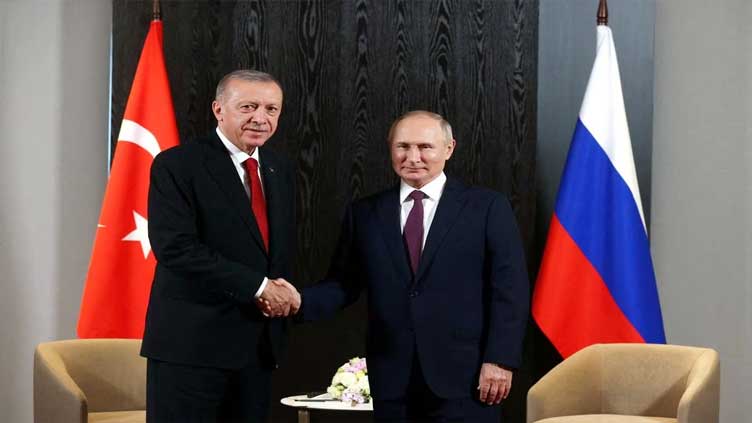Kremlin says Turkiye should have no illusions over its EU bid

World
Kremlin says Turkiye should have no illusions over its EU bid
(Reuters) - Turkiye should be under no illusion that it might one day be allowed to join the European Union, the Kremlin said on Tuesday, as Moscow stressed its desire for strong relations with Ankara despite disagreements, including over Nato enlargement.
Kremlin spokesman Dmitry Peskov was responding to a question about Nato member Turkiye's decision to lift its opposition to Sweden joining the alliance on the eve of a two-day Nato summit in Lithuania.
Turkish President Tayyip Erdogan has sought to maintain cordial ties with both Moscow and Kyiv during the 16-month war in Ukraine. He has refused to join Western sanctions against Russia over the invasion and has invited Russian President Vladimir Putin to visit Turkiye in August.
Turkiye had held up Sweden's accession, accusing the Nordic country of not doing enough to crack down on people Ankara sees as terrorists. On Monday, however, Erdogan dropped his objection to Sweden becoming Nato's 32nd member.
Russia sees Nato expansion as a threat to its own security, but Peskov played down a reporter's suggestion that Turkiye was pivoting away from Russia and towards the West.
"Turkiye can orient itself to the West, we know that in the history of the Republic of Turkiye there were periods of intensive orientation to the West, there were periods of less intensive ones," he told a daily news briefing.
'ROSE-TINTED SPECTACLES'
"But we also know that... no one wants to see Turkiye in Europe, I mean the Europeans. And here our Turkish partners should not wear rose-tinted spectacles either," he said.
He was alluding to long-standing EU resistance to admitting Turkiye, a large, relatively poor Muslim country adjoining the Middle East. It first applied to join the bloc in 1987.
Erdogan said on Monday that the EU should open the way for a resumption of stalled talks on Turkiye's bid to join the bloc in exchange for Ankara endorsing Sweden's application to join Nato, but European leaders said they could not accept such a linkage.
Peskov said Russia understood that Turkiye had to fulfil its obligations as a Nato member over Sweden, but he added that Moscow wanted to continue to build mutually beneficial relations with Ankara despite "all disagreements".
Turkiye is currently trying to persuade Russia to extend a deal it helped broker along with the United Nations last summer that allows Ukraine to export grain via the Black Sea. Moscow is angry over implementation of aspects of the deal and says it may not allow its extension beyond July 17.
Turkiye also helped last year to broker prisoner exchanges between Russia and Ukraine, and the Kremlin says Putin highly appreciates Erdogan's efforts to mediate in the war.
The Kremlin is also keen to build a new hub in Turkiye for exports of Russian gas, as Moscow reroutes shipments in response to European moves since the start of the war to sharply cut reliance on Russian energy.

